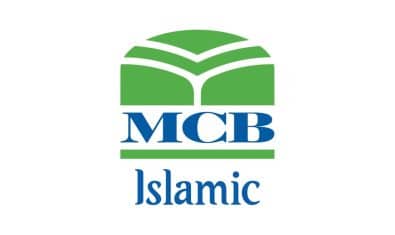Pakistan is witnessing huge under-invoicing in information technology, as products with an actual value of Rs. 68 billion were imported last year compared to the declared value of Rs. 36 billion – resulting in tax evasion of Rs. 8 billion.
During the last five years, duty/taxes of Rs. 40 billion were evaded due to under-invoicing of IT products which is allegedly used for money laundering.
This was revealed in the Senate Standing Committee on Commerce and Textile Industry which met with Syed Shibli Faraz in the chair on Wednesday.
The under-invoicing in IT products was also admitted by the Customs officials, who said that 68% under-invoicing was reported in USB hubs, 62.4% in wireless access points, 53.125% in networking switches, 50 percent in hard disks and 26.66 percent in used laptops.
Committee chairman said that according to the data collected from the Federal Board of Revenue (FBR) and other concerned departments, estimated tax evasion in IT related products was around Rs 40 billion during the last five years.
Stats
He said that during 2018, IT products of Rs. 36 billion were declared to be imported on which Rs 6 billion was paid as taxes/duties, but the actual import was Rs. 68 billion on which the importers had to pay Rs 14 billion.
He further said 6 percent new and 94 percent used desktops were imported during the last five years, while during 2018, 548,177 laptops were imported including 43 percent new and 57 percent used, but the categorization of used and new laptops is very strange. He further said that the value of a branded new laptop is declared $135 but in the market, it is being sold at around Rs. 95,000.
Customs officials said that the data provided by chairman committee has revealed an estimated value but not the assessed value. They said that the committee would be briefed in the next meeting.
Companies Involved
The committee asked whether companies raised questions on the under-invoicing, on which the customs officials replied that they do not raise objections. On which the parliamentarians stated that it means the companies are allegedly involved in under-invoicing. The committee directed that multi-national companies may be summoned in the next meeting to clarify their stance. Under-invoicing is being as a tool for money laundering, the committee observed.
The Customs officials also blamed Commercial Councilors posted abroad for not cooperating in timely provision of data. Committee chairman observed that Commercial Councilors are not performing their duties as expected. The committee directed Commerce Ministry to issue directives to commercial councilors for timely provision of data.
Tractor Import
Representatives from the Tractor industry informed the committee that Punjab government has proposed to allow import of five-year-old tractors due to which uncertainty has prevailed in the market and local production, as well as 300 vendors, have stopped functioning since the last two months.
The committee expressed concerns over the proposal while saying it would badly hurt the local industry and recommended the Commerce Ministry to reject such proposals. Joint Secretary informed the committee that the Punjab government proposal has been rejected and there is no plan underway to import used tractors.
Customs officials informed that the quantum of false declaration/under-invoicing, for instance, in the import of IT products has been analyzed which reveals that highly under-invoiced declarations have been made by importers, which were subsequently detected by Customs, and correct valuations were made accordingly.
Valuation Rulings under Section 25A of the Customs Act have been issued for Food products, Home Appliances, Paper, Tires, Tiles, Auto parts/Vehicles, Fabrics, Cosmetics, etc. Impact on revenue collection due to 25-A is as under duty/taxes payable before applying VRs is Rs. 131.6 billion, Duty/taxes collected after applying VRs is Rs. 151.6 billion and the difference in total duty/taxes collected is Rs 20 billion from July 1, 2018, to November 30, 2018.
FBR is ensuring due implementation of the empirical principles, and requisite administrative actions have been taken whereby, so far, 08 officials of Customs have been suspended. This is also in line with the effective plan that Georgia Customs used to root out under-invoicing and malpractices.
Rotation Policy for Officers and staff are being implemented to avoid monopoly of any particular official and collusion with importers.





















